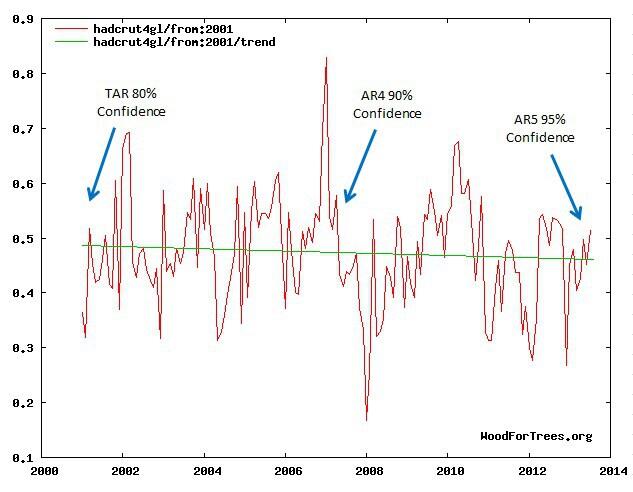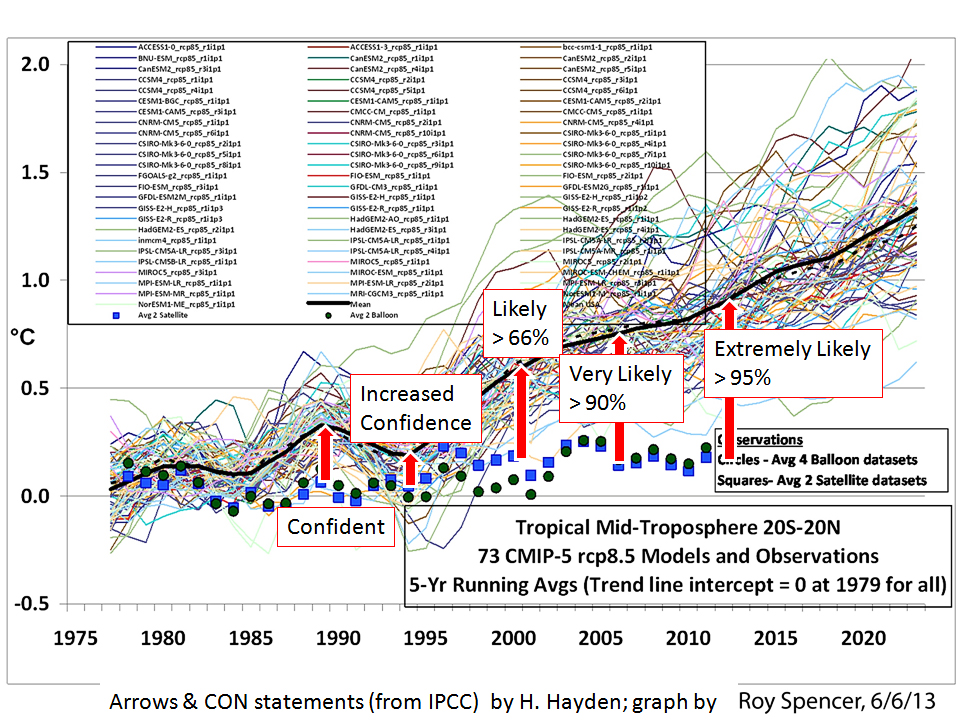Reliance by the IPCC upon this false assumption of model independence leads to "results [that] will be overconfident and may be treated as more precise than they really are," such as the increase of IPCC confidence in anthropogenic global warming despite global cooling over the past three assessment reports, and IPCC model ensembles which exaggerate warming by a factor of 3-5 times.


According to the authors,
"The results confirm that the climate models cannot be considered independent and show that the bias depends on the value of precipitation. This has an influence on the results of the uncertainty quantification. Both the mean and spread of the change in extreme precipitation depends on both assumptions. If the models are assumed independent and the bias constant, the results will be overconfident and may be treated as more precise than they really are. This study highlights the importance of investigating the underlying assumptions in climate change impact studies, as these may have serious consequences for the design of climate change adaptation strategies.
Journal of Climate 2014 ; e-View
A Bayesian Approach for Uncertainty Quantification of Extreme Precipitation Projections Including Climate Model Interdependency and Non-Stationary Bias
Maria Antonia Sunyer
Dan Rosbjerg
Karsten Arnbjerg-Nielsen
Department of Environmental Engineering, Technical University of Denmark, Miljøvej building 113, Kgs. Lyngby 2800, Denmark. masu@env.dtu.dk
Henrik MadsenDan Rosbjerg
Karsten Arnbjerg-Nielsen
| Abstract |
|---|
The results confirm that the climate models cannot be considered independent and show that the bias depends on the value of precipitation. This has an influence on the results of the uncertainty quantification. Both the mean and spread of the change in extreme precipitation depends on both assumptions. If the models are assumed independent and the bias constant, the results will be overconfident and may be treated as more precise than they really are. This study highlights the importance of investigating the underlying assumptions in climate change impact studies, as these may have serious consequences for the design of climate change adaptation strategies.
No comments:
Post a Comment